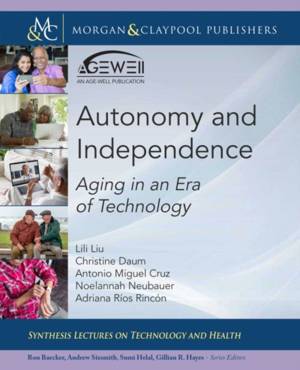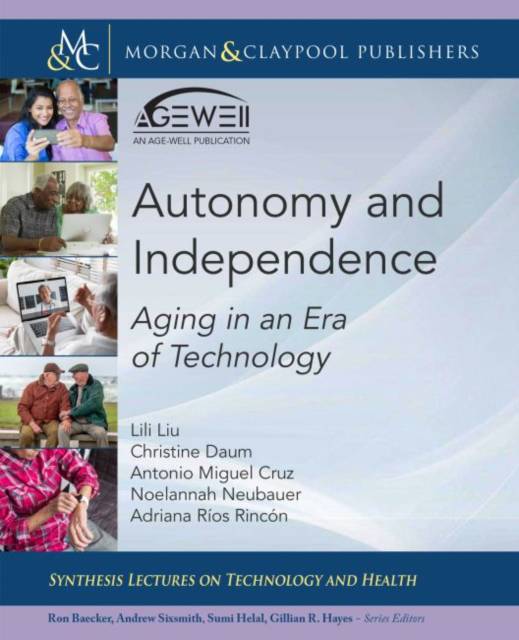
- Retrait gratuit dans votre magasin Club
- 7.000.000 titres dans notre catalogue
- Payer en toute sécurité
- Toujours un magasin près de chez vous
- Retrait gratuit dans votre magasin Club
- 7.000.0000 titres dans notre catalogue
- Payer en toute sécurité
- Toujours un magasin près de chez vous
Autonomy and Independence
Aging in an Era of Technology
Lili Liu, Christine Daum, Noelannah Neubauer, Antonio Miguel Cruz, Adriana Rios RincónDescription
This book looks at how AgeTech can support the autonomy and independence of people as they grow older. The authors challenge readers to reflect on the concepts of autonomy and independence not as absolutes but as experiences situated within older adults' social connections and environments. Eleven personas of people around the world provide the context for readers to consider the influence of culture and values on how we understand autonomy and independence and the potential role of technology-based supports.
The global pandemic provides a backdrop for the unprecedentedly rapid adoption of AgeTech, such as information and communication technologies or mobile applications that benefit older adults. Each persona in the book demonstrates the opportunity for AgeTech to facilitate autonomy and independence in supporting one's identity, decision making, advance care planning, self care, health management, economic and social participation, enjoyment and self fulfillment and mobility in the community. The book features AgeTech from around the world to provide examples of commercially available products as well as research and development within the field. Despite the promise of AgeTech, the book highlights the "digital divide," where some older people experience inadequate access to technology due to their geographic location, socio-economic status, and age.
This book is accessible and relevant to everyday readers. Older adults will recognize themselves or peers in the personas and may glean insight from the solutions. Care partners and service providers will identify with the challenges of the personas. AgeTech entrepreneurs, especially "seniorpreneurs," will appreciate that their endeavours represent a growing trend. Researchers will be reminded that the most important research questions are those that will enhance the quality of life of older adults and their sense of autonomy and independence, or relational autonomy and interdependence.
Spécifications
Parties prenantes
- Auteur(s) :
- Editeur:
Contenu
- Nombre de pages :
- 261
- Langue:
- Anglais
- Collection :
Caractéristiques
- EAN:
- 9781636392493
- Date de parution :
- 20-01-22
- Format:
- Livre relié
- Format numérique:
- Genaaid
- Dimensions :
- 152 mm x 229 mm

Les avis
Nous publions uniquement les avis qui respectent les conditions requises. Consultez nos conditions pour les avis.






